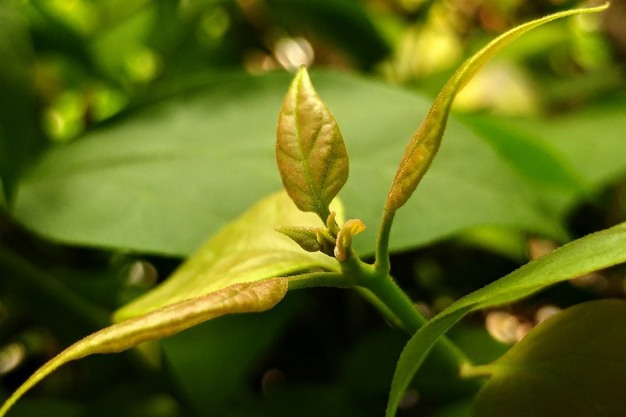In the journey from seed to salad, bread, or pasta sauce, each crop we consume starts with a critical step: the seed. Growers worldwide pay premium prices for seeds, expecting them to be robust, pure, and genetically reliable. Yet, the challenges of agriculture—unpredictable weather, pests, and diseases—can throw even the most carefully planned crops off track. One of the most pressing concerns growers face is ensuring the genetic purity of seeds, a factor essential for crop health, yield, and uniformity. However, until recently, a unified, reliable method for testing genetic purity has been missing. Gene-G Applied Genetics provides a possible solution: a DNA fingerprinting method based on Single-Nucleotide Polymorphisms (SNPs).
"Growers and breeders invest substantial resources into seed quality, and the risk for severe loss due to genetic impurities is high," says Dagan Mor, CEO at Gene-G. "While protocols exist for germination and health tests, there has been no universal standard for testing genetic purity—until now."
The International Seed Testing Association (ISTA) offers rigorous guidelines for assessing germination, seed health, and physical properties. Surprisingly, despite strict reporting requirements, genetic purity testing remains undefined in their standards. To fill this gap, Gene-G's new DNA fingerprint genotyping method creates a genetic "blueprint" for each seed variety, offering accuracy, efficiency, and cost-effectiveness that far exceed traditional methods.

How DNA fingerprinting ensures purity
Gene-G's solution works by testing multiple polymorphic SNPs scattered throughout the genome of the seed. "Each SNP is like a unique identifier," says Dagan. "Together, they form a DNA-based fingerprint, which we can use to assess each lot's genetic purity." This method has been successfully applied across various high-value crops, including tomatoes, peppers, cucumbers, melons, watermelons, squash, pumpkin, and more.
The advantages of DNA fingerprinting over previous methods are clear. Instead of lengthy and costly grow-out tests—where seeds are cultivated to observe genetic traits directly—DNA fingerprinting can quickly and accurately identify off-types and confirm true-type hybrids. "Each well in a single PCR reaction can hold dozens of SNPs, creating a highly specific genetic map. Not only is this efficient, but it reduces costs and the time needed for genetic purity assurance," Dagan notes.
A new era for seed testing
Historically, seed purity testing relied on protein-based markers, such as isozymes, and more recently, DNA markers like AFLP, RFLP, and SSR. While valuable, these methods lack uniformity and precision, and no universal standard has emerged. "Every seed company has used its own approach," Dagan continues, "so there's no shared baseline, which leaves room for inconsistencies."
Many seed companies still use grow-out tests, planting seeds to observe their phenotype and identify potential impurities. However, Dagan points out the limitations: "Growing the seeds takes an entire season, delaying production, and in many cases, genetic impurities remain hidden. Environmental factors like geography, climate, and pest exposure vary widely and influence results, meaning growers still face risks when relying solely on these tests."
DNA fingerprinting removes these variables, providing growers and seed producers with a more stable, definitive picture of genetic purity, independent of outside conditions. This approach has rapidly gained popularity among breeding and seed production organizations, which recognize its ability to provide faster, more reliable data without a growing season's wait.
Change in seed purity testing
Gene-G has specialized in molecular genetic solutions since 2015, conducting genetic purity tests, SNP fingerprinting, and unique trait development projects for a wide array of crops. The team's innovative approach attracted interest from crop-breeding organizations worldwide, which rely on Gene-G's solutions to accelerate market entry. By developing tailor-made protocols and unique testing methods, Gene-G has introduced a range of novel, effective tools for genetic assessment.
"Since our founding, we've focused on practical, out-of-the-box solutions for the seed industry. Our approach leverages molecular genetics to meet the specific challenges of our clients," Dagan explains. The team's work includes not only genetic purity testing but also environmental microbiome monitoring, enhancing crop resilience against diverse environmental stressors.
With their new DNA fingerprint genotyping method, Gene-G offers a potential gold standard for genetic purity assurance in seeds, leading to more consistent quality across the global seed market. "We're passionate about advancing seed quality," Dagan concludes.
For more information:![]() Gene-G
Gene-G
www.gene-g.com
info@gene-g.com.
